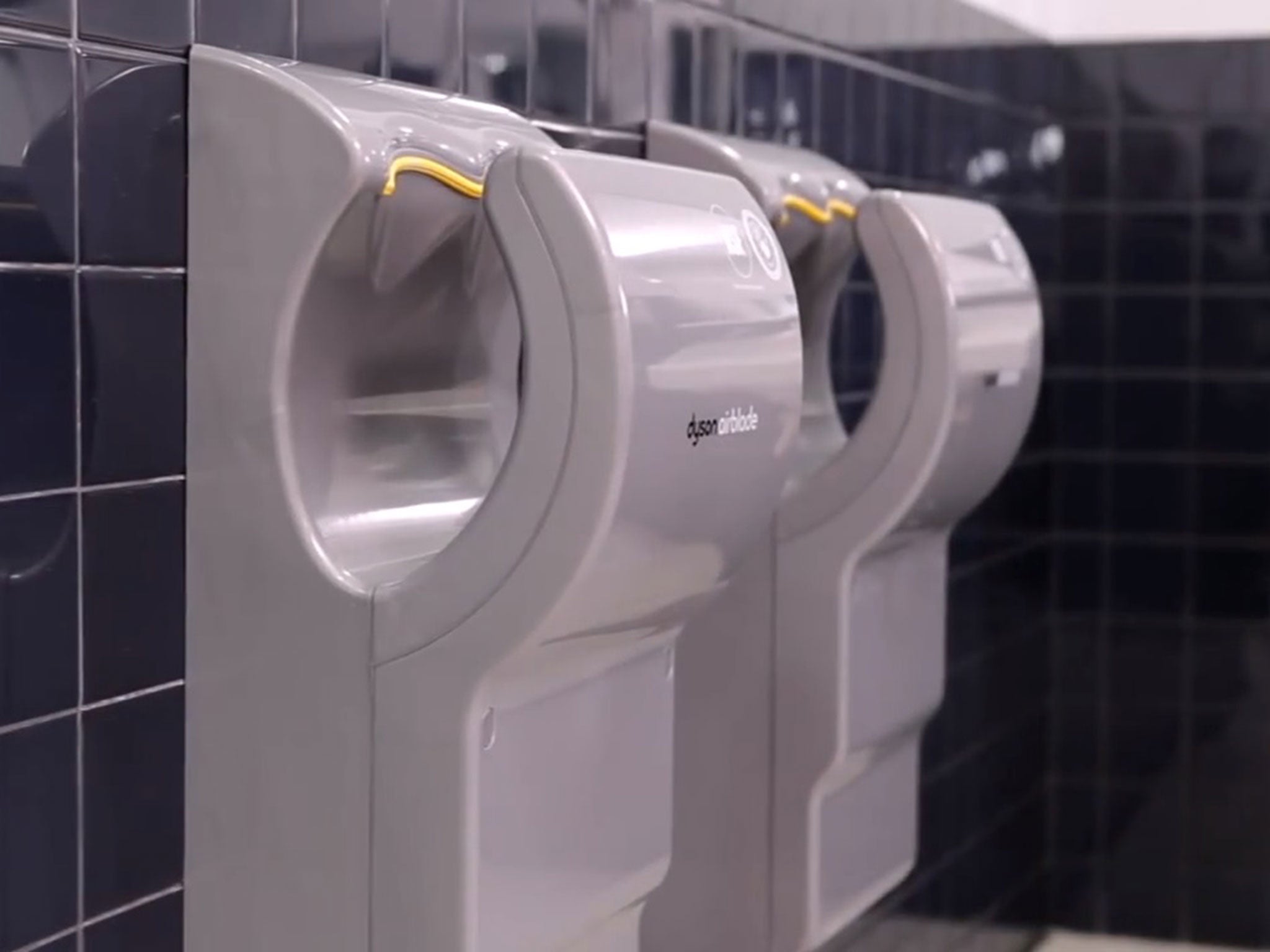Dyson Airblades 'spread 1,300 times more germs than paper towels'
Hand dryer company says new study that questions product's hygiene implications is 'misleading' and was conducted under 'artificial conditions' - a claim disputed by the researchers

Dyson has said that a study claiming hand dryers such as its Airblade spread 1,300 times more germs than paper towels is “misleading” scaremongering by tissue manufacturers.
Research published in the Journal of Applied Microbiology in January also showed that jet-air hand dryers, such as the Dyson Airblade – which are found in the toilets of many restaurants, schools, hospitals and offices – spread 60 times more bugs than traditional warm-air hand dryers.
But Dyson has said the results are not accurate because of the “artificial conditions” under which the study was conducted – a criticism one of its authors has rejected.
Carried out at London's University of Westminster, the study compared three methods of hand drying: paper towels, a warm air dryer and a jet air dryer.
It tested these methods for their potential to spread viruses and to contaminate the immediate environment during use.
Participants wearing gloves washed their hands in a suspension of viruses and then dried them using each of the three devices.
The report stated: “The choice of hand-drying device should be considered carefully in areas where infection prevention concerns are paramount, such as healthcare settings and the food industry.”
But, a spokesman for Dyson, said that in everyday situations, it would be unlikely for hands to have such high levels of virus contamination as used in the study and that, in any case, the process of washing hands before they are dried has, as its very purpose, the aim of getting rid of germs.
The use of gloved hands with virus on them, as opposed to bare, hands washed in water meant that the study’s findings were misleading.
He said: “The paper towel industry has scaremongered with this [type of] research for the past four years.
“It has been conducted under artificial conditions, using unrealistically high levels of virus contamination on unwashed, gloved hands.”
A number of other studies – published in the Journal of Applied Microbiology and elsewhere – had proven that Dyson’s machine was as hygienic as paper towels, he added.
Dr Patrick Kimmitt, one of the study’s authors, said: “The work we have done has gone through a rigorous process of peer review by three expert, independent reviewers before publication in the Journal of Applied Microbiology.
“In addition, the fact remains that many individuals do not wash their hands thoroughly and/or do not use any kind of soap or sanitizer and this means that if their hands are contaminated with a pathogen it may still be present after ‘washing’. We were testing this scenario in our study.
“If hands are not washed properly and carry pathogens then the question is what happens when they are dried?
“Viruses such as Norovirus have a very low infectious dose, fewer than 50 virus particles can give rise to a nasty infection. It is perfectly possible for hands to carry one million of these particles after using the toilet.”
Companies such as Dyson have for a number of years complained that the paper towel industry has sponsored research investigating the hygiene implications of various methods of hand drying.
In 2014, Dyson published a YouTube video in response to “questionable reports commissioned and reported by the paper towel and cotton roll towel manufacturers trying to make Dyson Airblade seem unhygienic”.
The video states that the Dyson Airblade reduces the transference of germs by up to 40 per cent.
Join our commenting forum
Join thought-provoking conversations, follow other Independent readers and see their replies
Comments
Bookmark popover
Removed from bookmarks